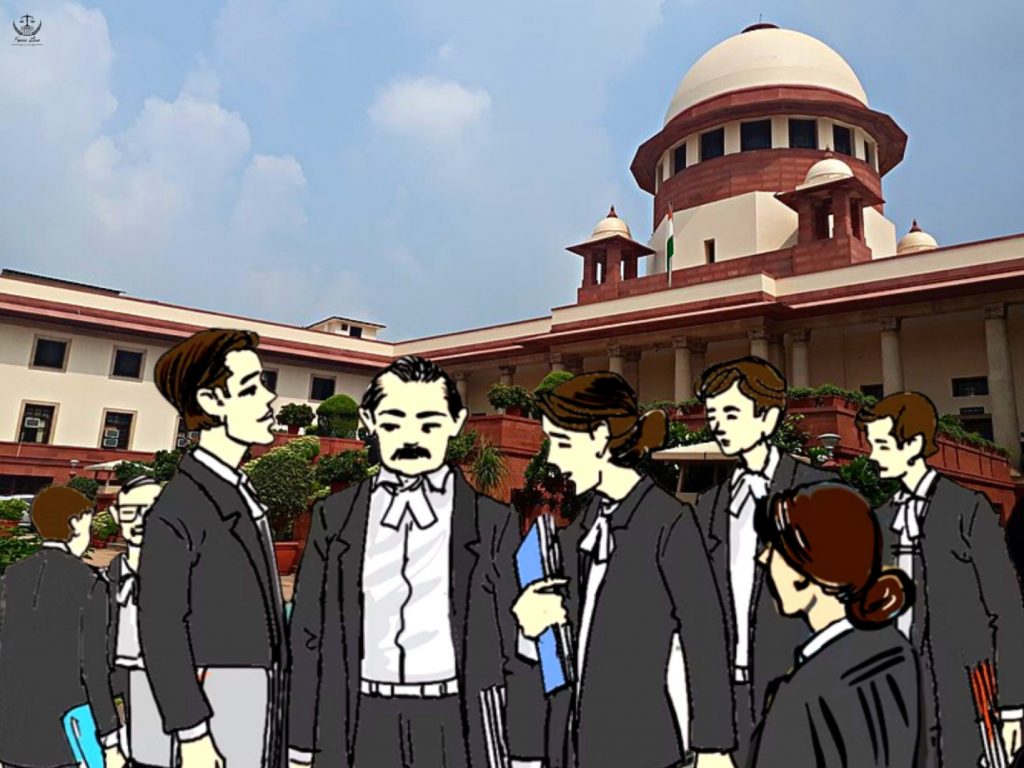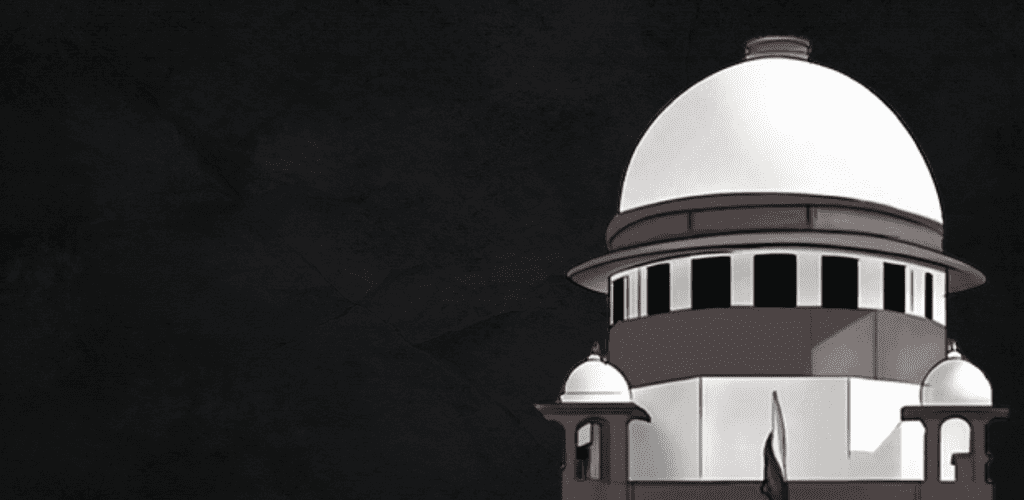
Law and lawyers have been an integral part of society for a long time which helps in the overall development of society. Lawyers who are considered guardians of law have a great role in ensuring justice to the people, which can be done through proper regulation of law and order in society. While analyzing the issues concerning the legal system in society, it can be seen that in recent times, one of the issues faced is the court boycott done by the lawyers due to various reasons based on different aspects of society. The court boycott by lawyers is a serious issue that has gained importance in recent times and has to be resolved in order to have a properly functioning society where the rules are followed by all the people especially the lawyers who can make a change in society through their actions which have an impact on the overall functioning of the society.
Court Boycott by Lawyers
A lawyer’s refusal to attend court owing to a strike or boycott by the Bar Associations is unprofessional and unbecoming, as they cannot interrupt court proceedings and jeopardize their client’s interests. An advocate is a court officer with a unique status in society. Advocates have responsibilities and obligations to ensure that the court runs well, they owe a duty to their clients, and strikes obstruct the administration of justice. The proposal by the Bar Council of India to draught regulations to limit calls for strikes by bar groups and advocates is a positive step.
Advocates have been striking for a variety of reasons over the last few years. Lawyers in West Bengal went on strike for a month in 2019 to protest alleged police brutality amid a dispute between advocates and civil servants. Following the assassination of Uttar Pradesh Bar Council President Darvesh Yadav, their counterparts in Uttar Pradesh went on strike, seeking better working conditions and security for all attorneys.
Report of the Law Commission
In the 266th report of the Indian Law Commission, it is suggested that the District Judge establish an Advocates’ Grievance Redressal Committee, headed by a Judicial Officer, at each district headquarters to deal with the day-to-day routine matters, a large number of issues and grievances that arise in the smooth working of the advocates. In this regard, the High Court may issue a circular as part of its competence under Article 235 of the Constitution of India to provide for the redress of Advocates’ concerns, which will aid in their effectiveness. If the Bar has a grievance against a Judicial Officer, it may take the matter to the Chief Justice of the High Court in question.
In response to Bill’s rejection by certain cabinet ministers, Madhya Pradesh lawyers asked that the Advocate Protection Act be enacted. Following the grant of bail to a key suspect in a cricket betting ring, attorneys in Odisha went on strike, and the Punjab and Haryana High Court was shut down for a week as lawyers protested the creation of a tribunal to deal with service-related issues for Haryana government employees. This current state of affairs is alarming.
Should such lengthy strikes be allowed to take precedence over people’s fundamental rights in a democratic society? There are undertrials awaiting trial in jails, as well as litigants who have waited years for their cases to be heard. Unjustified strikes should not be tolerated in a judicial system where a significant volume of pending cases has harmed citizens’ rights. When lawyers go on strike, the right to a quick trial, recognized by the Supreme Court in the Husnaira Khatoon case in 1979, becomes a travesty. Such actions violate the spirit of Article 39A and tarnish the criminal justice system‘s reputation. It is critical that the legal community rejects such activities.
What does the Supreme Court have to say on Court Boycott?

The Supreme Court of India decided in Harish Uppal (Ex-Capt) v. Union of India that lawyers do not have the right to strike or call for a boycott of courts. Only press comments, TV interviews, banners or placards carried outside the court premises, wearing black, white, or any color armbands, peaceful marches outside and away from court grounds, and dharnas or relay fasts can be used to register protests. The decision allowed dissenting lawyers to defiantly refuse to participate in any strike or boycott call, and it stated that no lawyer can be subjected to any negative consequences by the Association or the Council and that no threat or coercion of any kind, including expulsion, can be used against them. The only exception was where the dignity, integrity, and independence of the Bar or the Bench were in jeopardy. In such instances, the courts may overlook a one-day strike as a protest. This exception was also clarified to clarify that it is solely up to the Court to determine whether the issue involves the Bar or dignity, Bench’s integrity, or independence and that a mechanism was established before advocates opted to leave the court.
The Habibganj pleaders’ boycott of the Court in 1922 in protest of Mahatma Gandhi’s incarceration qualified as misconduct under Section 13(b)(7) of the Legal Practitioner’s Act. In Emperor v. Rajni Kanta Bose and Ors, Justice Sir Ashutosh Mukherjee stated, amongst other types of misconduct, none is more reprehensible than conduct that tends to impede, obstruct, or prevent the administration of justice or to destroy the confidence of the people in such administration, and any attempt on the part of the pleader to boycott the court or to obstruct the administration of justice by any form of device constitutes in his opinion. A lawyer’s ethical, legal, and moral obligation is defined by the Vakalatnama, which he receives from his client.
The Advocates Act, 1961’s ‘Rules governing Advocates’ provide that an advocate may not withdraw from an engagement once it has been accepted unless there is good reason and the client is given reasonable and sufficient notice. The ability of Bar Associations to make unilateral judgments by centralizing authority is a serious threat to the institution. As a result of such measures, the Bar’s tenacious and bold mandates for redressing valid and genuine concerns will be reduced to silent acts. The plaintiffs are the ultimate losers when the judiciary is overwhelmed with pending cases.
Even the United States Supreme Court declared unconstitutional unrestricted freedom of speech and expression in the 1989 case of Federal Trade Commission v. Superior Court Trial Lawyers’ Assn., in which the activities of a group of attorneys to boycott the courts were deemed to be restraint of trade. The Court pointed out that, while the goal was the enactment of favorable legislation, the boycott used by the Attorneys to achieve it was not protected by the First Amendment. The principle of utilitarianism “the greatest quantity of benefit for the greatest number” is taught in law school. An assessment of incumbent activities of the advocates on strike, as one of the most powerful and compelling ways of normative ethics, would attest to the fact that there is no good being received from the current status quo.
Rather, it dilutes the professions, its members, and the institution’s very character. Such measures have been criticized by senior legal authorities in the country. In an article published in the National Law School Journal in 1989 titled “The Legal Profession at the Turn of the Century,” K K Venugopal, India’s former Attorney General, argued that the boycott is contempt of court and that advocates participating in the strike are holding their clients hostage and jeopardizing their interests. Lawyers, according to H M Seervai, should be aware that as long as lawful remedies are accessible to aggrieved lawyers, there is no justification for lawyers to join in an illegal conspiracy to commit a gross, criminal contempt of court, therefore jeopardizing the constitutional right to liberty.
Conclusion
The essential role of the judiciary is to serve those who seek justice for themselves, and in order to do so, each branch must coordinate and collaborate with one another. Any flaw in the system would be a breach of Article 21 of the Constitution’s fundamental right to a prompt trial. As a result, the lawyers’ request for a strike has a negative impact on the judicial system’s operation. Protests and strikes frequently disrupt the administration of justice, causing delays in case trials and, as a result, case pendency.
The Supreme Court has resorted to the right of lawyers to strike from time to time in various judgments, directing plaintiffs to work efficiently for justice with no failures. The restriction on lawyer strikes is justifiable since the repercussions of strikes were corroding the foundations of the judiciary. However, it is equally critical to protect the interests of advocates in order for the legal system to work properly. The Advocates Act 1961, Section 7 Clause (d), defines the role of the Bar Council of India in safeguarding the rights, privileges, and interests of advocates. As a result of adhering to the regulations, lawyer grievances must be heard and additional steps made to address their issues.